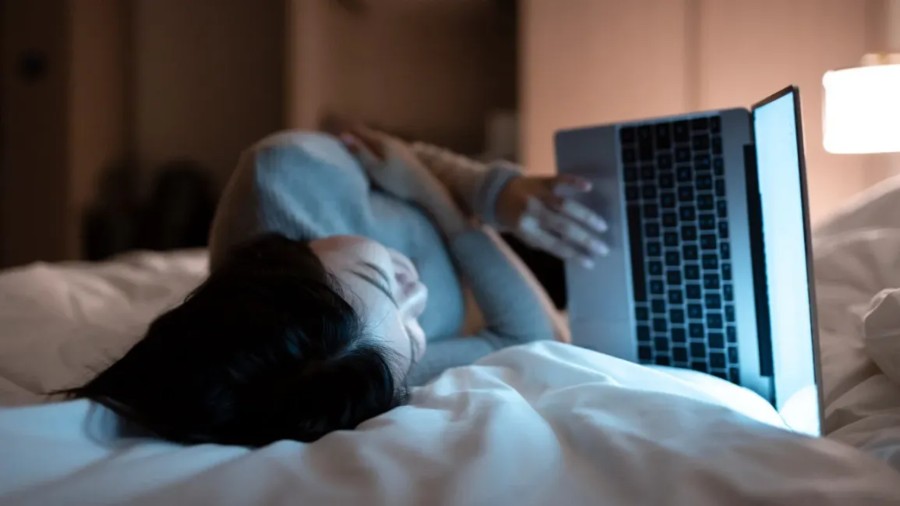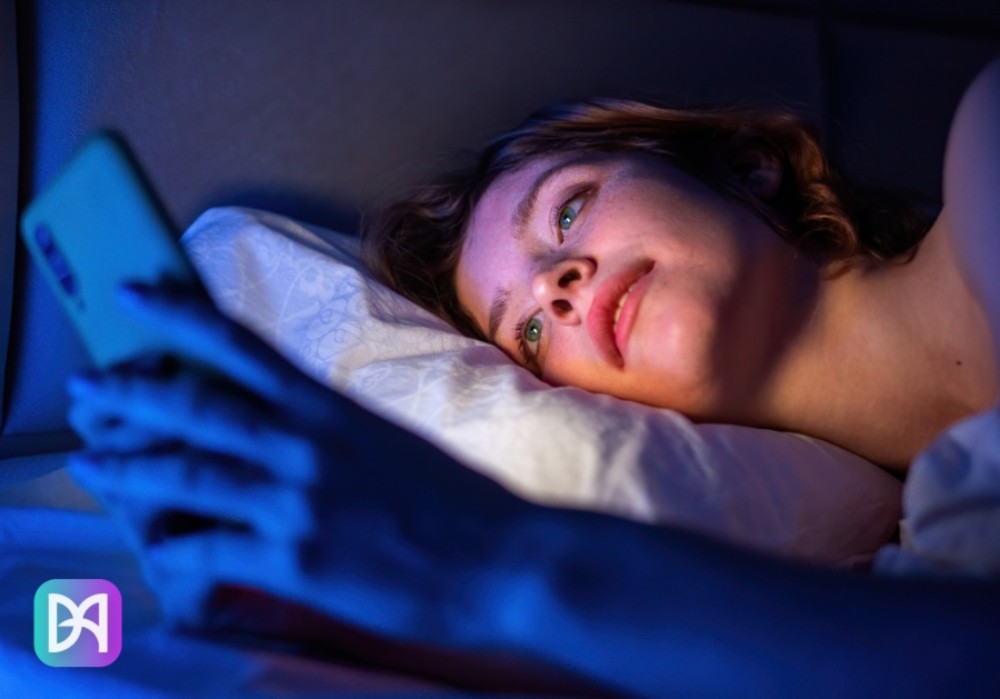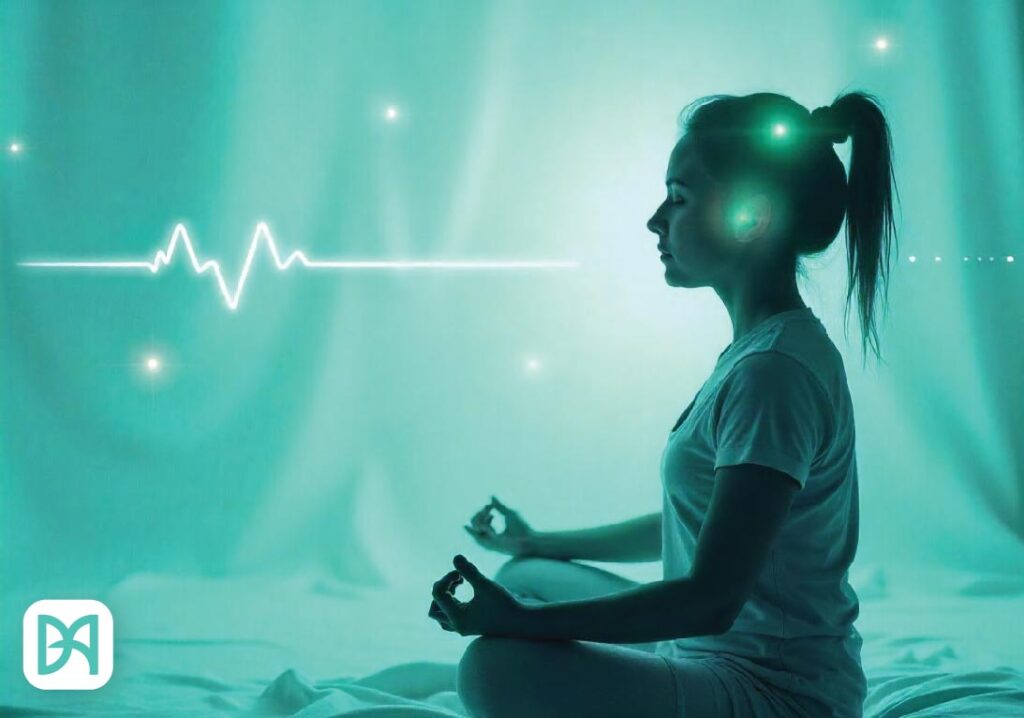The sun is often the main source of blue light but LED lights and computer displays can also emit it. Although animal studies provide conflicting evidence, some scientists think that the effects of blue light from artificial sources could harm human eyes. It’s likely that the gadget you’re using to read this page produces blue light. Should you be worried about blue light leaking into your eyes given that people spend record amounts of time in front of screens?
Here’s a glance, outlining what it is and how it may harm or benefit you, as well as the Effects of Blue Light on your health and eyes.

Table of Contents
ToggleWhat is Blue Light?
Electromagnetic energy is surging across the world. It moves in waves both through and around us. The waves vary in length.
Long Wavelength include:
- Radio Waves
- Micro Waves
- Ultraviolet Waves
- Infra-red Waves
Short Wavelength include:
- X-rays
- Gamma rays
A wave delivers less energy the longer it is. The waves of blue light are of great intensity and very brief.
Since UV waves are too short for humans to perceive with the naked eye, they are just marginally longer and weaker than them. Health professionals have issued warnings about the dangers of ultraviolet radiation, which may affect both your skin and your eyes. Blue light waves with high energy are almost as strong.
Which Devices Produce Blue Light?
You are surrounded by blue light, just like other visible light hues.
The devices that produce blue light are:
- Light bulbs
- Light-emitting diode (LED)
- Computer and laptop screens
- Flat-screen televisions
- Cell phones and Tablets
These gadgets are all LED-based and emit a lot of blue light.
Effects of Blue Light on Eyes
Your eyes have built-in defenses to protect them from certain types of light. For example, your cornea and lens shield the retina at the back of your eye from harmful UV rays. However, they don’t block blue light.
Blue light is everywhere. The sun emits far more blue light than any device. Still, experts worry about the blue light from digital screens. Many people use these devices for long hours and at close range, which increases exposure.
During COVID-19 lockdowns, a 2020 study in the Indian Journal of Ophthalmology found that 32.4% of participants used blue-light-emitting devices for 9–11 hours daily. Another 15.5% used them for 12–14 hours daily. The increase was likely due to remote work and lifestyle changes during the pandemic.
So far, research hasn’t confirmed that blue light damages the human retina. Animal studies suggest it could harm retinal cells, but doctors see little proof of harm in humans. One case involved a woman who experienced vision issues after using an LED face mask. However, it’s unclear if blue light caused the problem, as the mask also emitted red and infrared light.
LED devices are still new, and researchers haven’t done long-term studies yet. For now, the impact of blue light on human eyes over a lifetime remains uncertain.
Bad Effects of Blue Light on Your Health
There are a few extra concerns to take into account, even if a recent study suggests that blue light from computer screens and portable electronics probably does not pose a significant risk to your eyes.
Here is a brief overview of the negative health effects of blue light waves.
Macular Degeneration
Age-related macular degeneration (AMD) is the leading cause of vision loss in people over 50, says the American Academy of Ophthalmology (AAO). This condition occurs when the macula, a part of the eye, gets damaged with age.
AMD affects the center of your vision, making details and objects blurry. You may still see things in your peripheral vision, but central vision becomes harder to focus on over time.
Some studies on animals and in labs suggest blue light might speed up macular degeneration. However, experts say there’s no proven link between LED or blue-light devices and AMD. A 2018 review also found no evidence that blue-light-blocking lenses prevent AMD after cataract surgery.
Digital Eyestrain
Using digital devices up close or for long periods can strain your eyes.
When you use computers, laptops, or other screens, you tend to blink less. Blinking less reduces moisture in your eyes.
Digital eyestrain happens when your eyes struggle to focus. This often comes from staring at screens that emit blue light.
You might notice symptoms like:
- Dry, sore, or irritated eyes
- Tired eyes
- Headaches
- Fatigue in your facial muscles from squinting
Blue light scatters easily, making it hard for your eyes to focus. It can feel like looking at fuzzy, unfocused static. This lowers contrast, which may cause strain.
However, more research is needed to prove that blue light directly causes eyestrain.
Blue Light Impact on Sleep
The long-term Effects of Blue Light on Eye health are still debated. However, its impact on sleep is clearer.
Your eyes and skin sense light changes. They notice the bright blue light of daytime and the softer, reddish tones of evening. As daylight fades, these sensors signal your body to release melatonin, a hormone that helps you sleep.
A 2015 study showed that exposure to blue light in the evening reduces melatonin release. This delays or disrupts sleep cycles.
A 2019 review found that disrupted sleep cycles can lead to other issues:
- Higher risks of hormone-related cancers like breast and prostate.
- Lower leptin levels, making it harder to feel full after eating.
- Blood sugar and metabolism problems.
Limiting blue light at night may help protect your sleep and health.
The Ultimate Line
Blue light is an integral component of the EM spectrum. Most of it comes from the sun. However, some health experts question if artificial blue light harms your eyes.
Studies show blue light damages cells in lab animals. But there’s little proof that blue light from screens harms human eyes.
Using screens for long periods can cause digital eyestrain. To avoid this, take regular breaks during work or school.
Effects of blue light may also include disruption of your sleep cycle. To improve sleep, avoid screens before bed or use an amber-light setting.
Frequently Asked Questions (FAQs)
How to reduce blue light exposure?
To reduce blue light exposure you may apply the following rules:
- Don’t dry out your eyes.
- Wear eyeglasses that are prescribed appropriately.
- Your screen’s blue light can be adjusted.
- Ignore the blue-blocking specifications.
Is blue light from your phone dangerous?
Retinal cell damage from prolonged exposure to Blue Light from Your Phone may result in visual issues including age-related macular degeneration. It can also lead to growths on the transparent layer that covers the white portion of the eye, cataracts, and eye cancer.
What are some ways to improve sleep quality?
A few ways to improve sleep quality are as follows:
- Maintain a regular sleep routine.
- Be mindful of your food and beverages. Avoid going to bed full or hungry.
- Establish a relaxing atmosphere. Make sure your room is quiet, dark, and chilly.
- Limit naps during the day.
- Make exercise a part of your everyday schedule.




